All posts in Urban Policies Programme
-
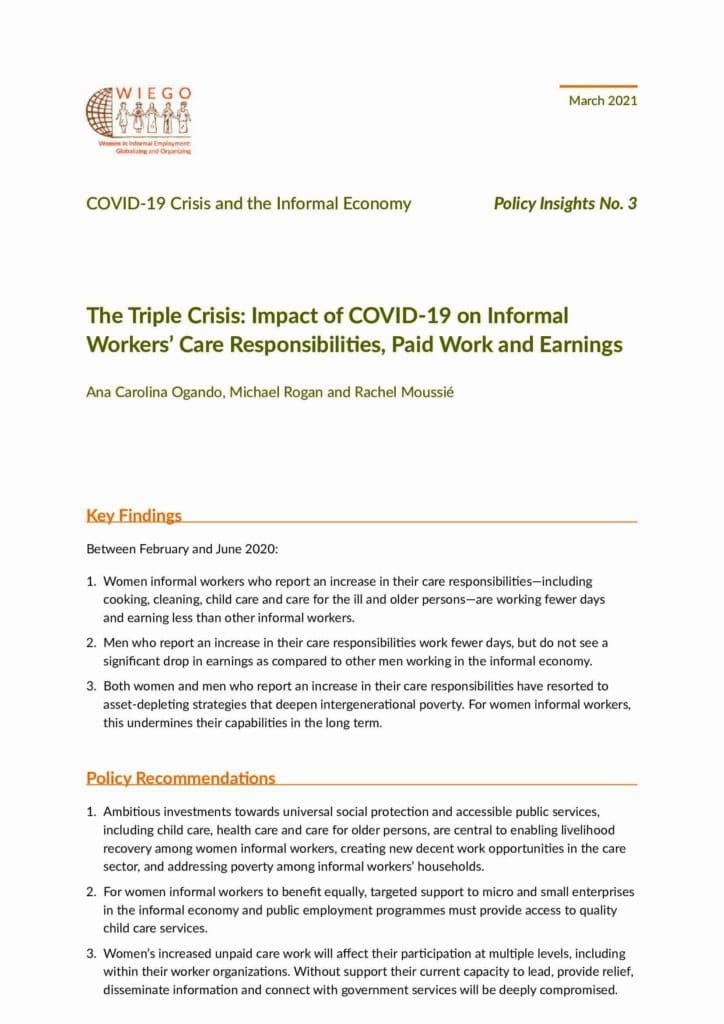 Global Reports
Global Reports
The Triple Crisis: Impact of COVID-19 on Informal Workers’ Care Responsibilities, Paid Work and Earnings
COVID-19 Crisis and the Informal Economy Policy Insights No. 3 Key findings and policy recommendations pertaining to the impact of the pandemic...
Read More -
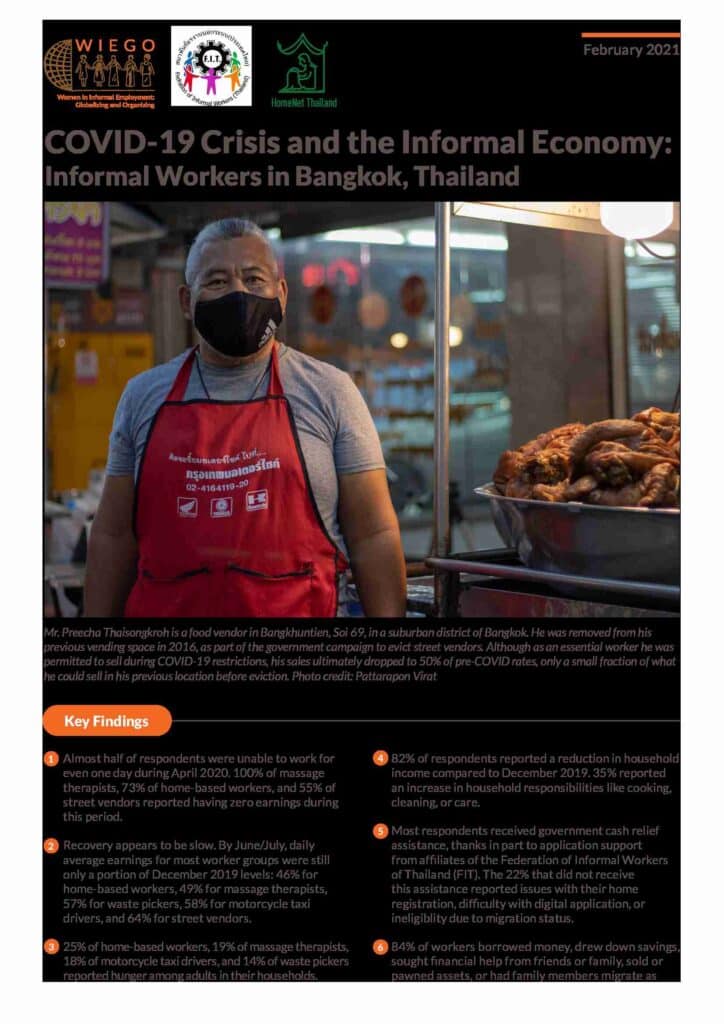 City/Country Level Reports
City/Country Level Reports
COVID-19 Crisis and the Informal Economy: Informal Workers in Bangkok, Thailand
COVID-19 Crisis and the Informal Economy is a WIEGO-led 12-city longitudinal study that assesses the impact of the COVID-19 crisis on specific...
Read More -
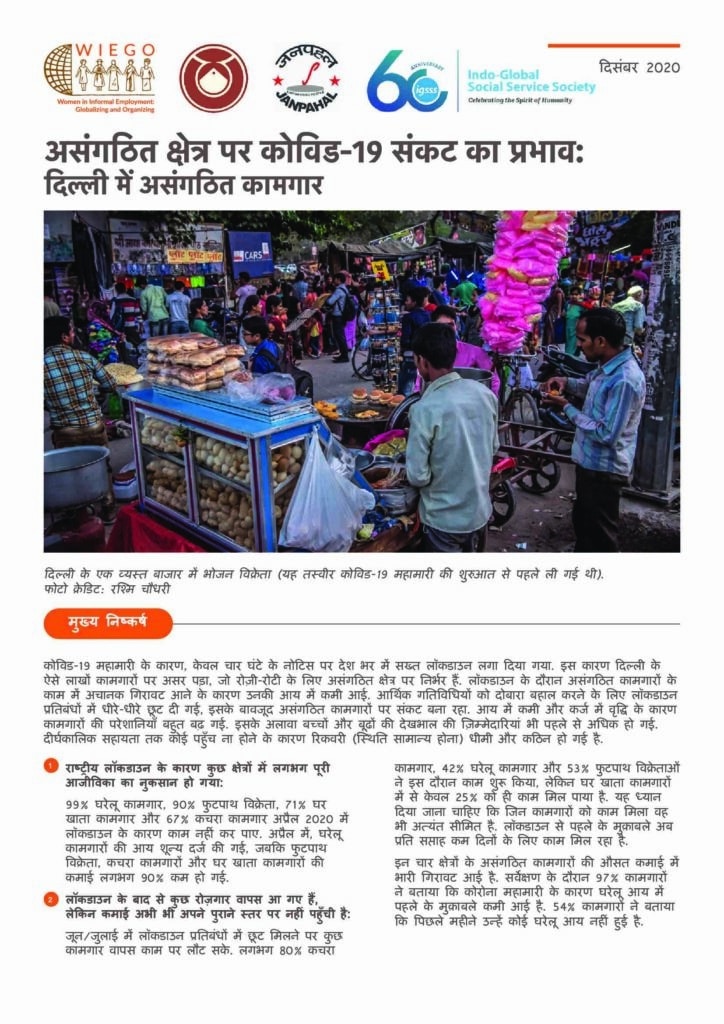 City/Country Level Reports
City/Country Level Reports
असंगठित क्षेत्र पर कोविड-19 संकट का प्रभाव: दिल्ली में असंगठित कामगार
कोविड-19 संकट और अनौपचारिक अर्थव्यवस्था
Read More -
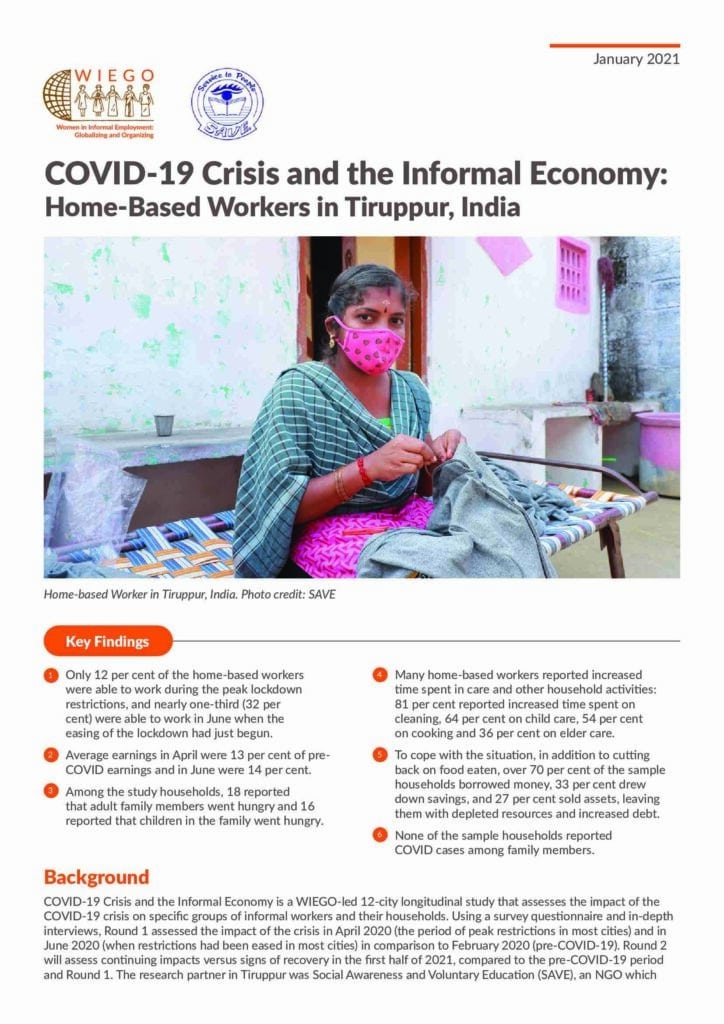 City/Country Level Reports
City/Country Level Reports
COVID-19 Crisis and the Informal Economy: Home-Based Workers in Tiruppur, India
COVID-19 Crisis and the Informal Economy is a WIEGO-led 12-city longitudinal study that assesses the impact of the COVID-19 crisis on specific...
Read More -
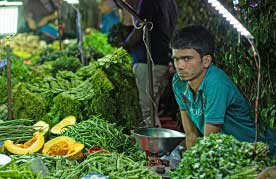 Press
COVID-19 Crisis Study February 22, 2021
Press
COVID-19 Crisis Study February 22, 2021New report reveals devastating impact of COVID-19 on Delhi’s informal workers
New report reveals devastating impact of COVID-19 on Delhi’s informal workers COVID-19 devastated workers’ livelihoods and forced them into...
Read More -
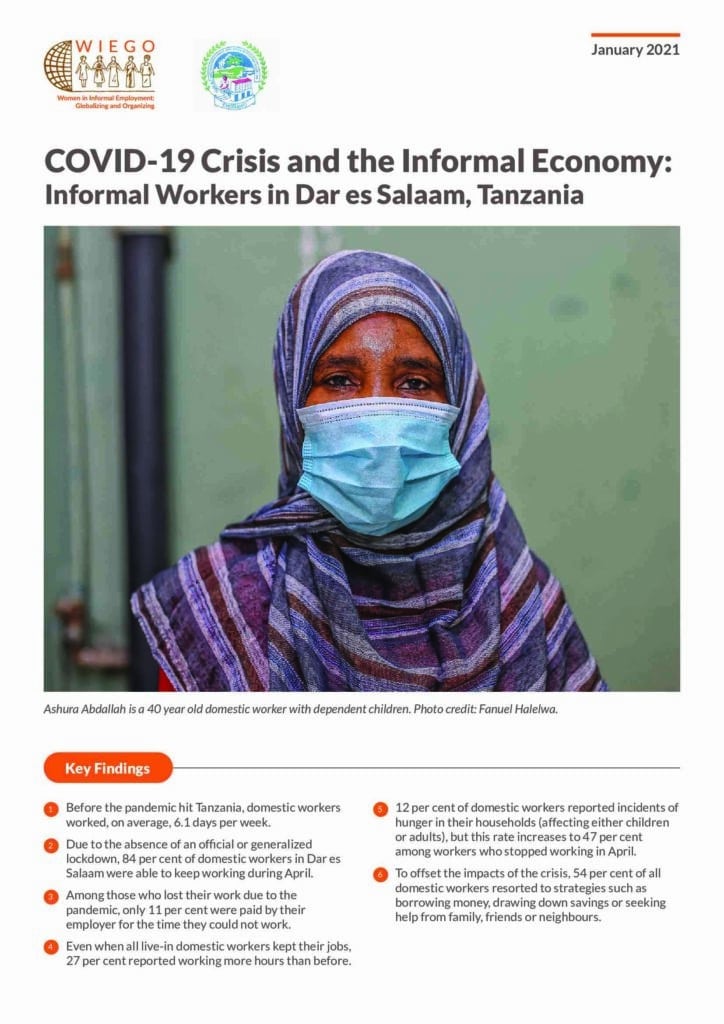 City/Country Level Reports
City/Country Level Reports
COVID-19 Crisis and the Informal Economy: Informal Workers in Dar es Salaam, Tanzania
COVID-19 Crisis and the Informal Economy is a WIEGO-led 12-city longitudinal study that assesses the impact of the COVID-19 crisis on specific...
Read More -
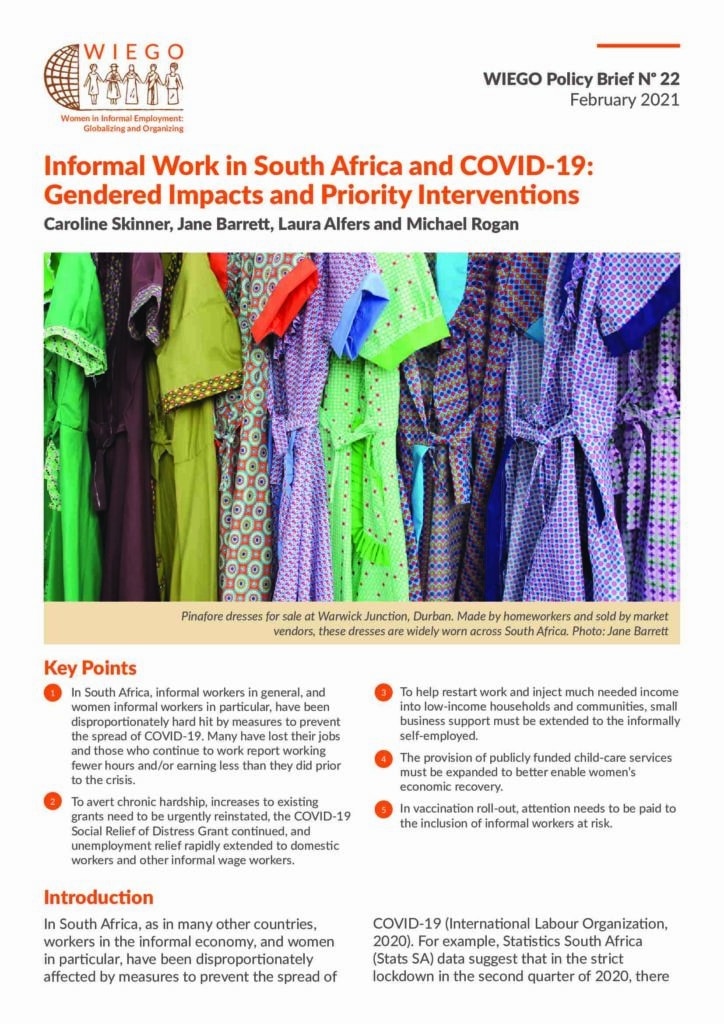 Policy Briefs
Policy Briefs
Informal Work in South Africa and COVID-19: Gendered Impacts and Priority Interventions
In South Africa, informal workers in general, and women informal workers in particular, have been disproportionately hard hit by measures...
Read More -
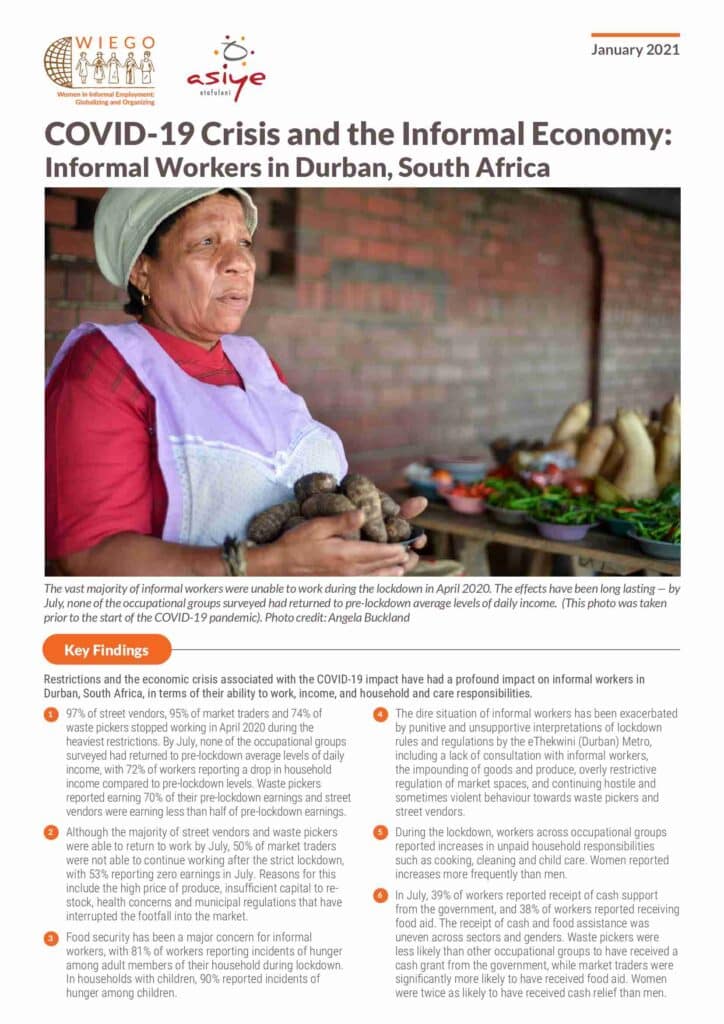 City/Country Level Reports
City/Country Level Reports
COVID-19 Crisis and the Informal Economy: Informal Workers in Durban, South Africa
COVID-19 Crisis and the Informal Economy is a WIEGO-led 12-city longitudinal study that assesses the impact of the COVID-19 crisis on specific...
Read More -
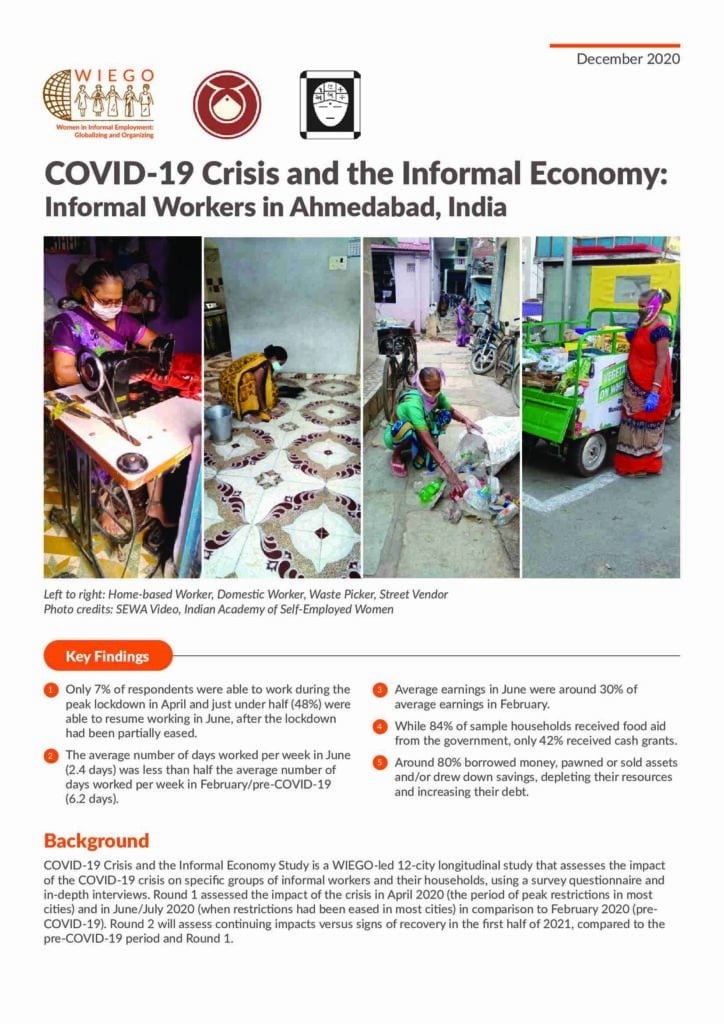 City/Country Level Reports
City/Country Level Reports
COVID-19 Crisis and the Informal Economy: Informal Workers in Ahmedabad, India
COVID-19 Crisis and the Informal Economy is a WIEGO-led 12-city longitudinal study that assesses the impact of the COVID-19 crisis on specific...
Read More -
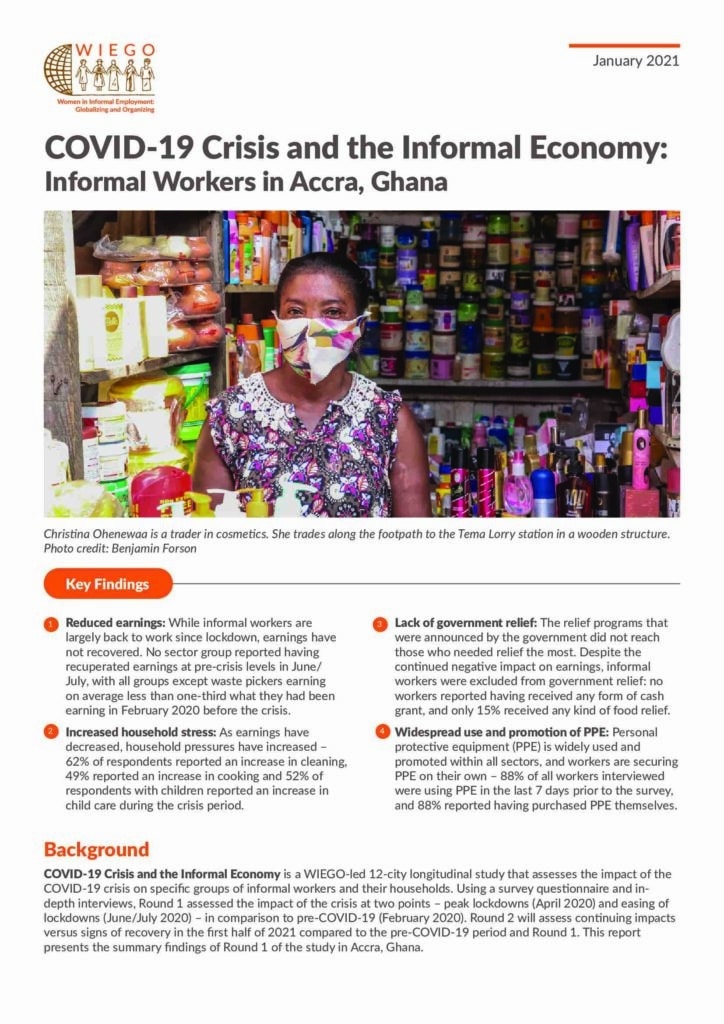 City/Country Level Reports
City/Country Level Reports
COVID-19 Crisis and the Informal Economy: Informal Workers in Accra, Ghana
COVID-19 Crisis and the Informal Economy is a WIEGO-led 12-city longitudinal study that assesses the impact of the COVID-19 crisis on specific...
Read More